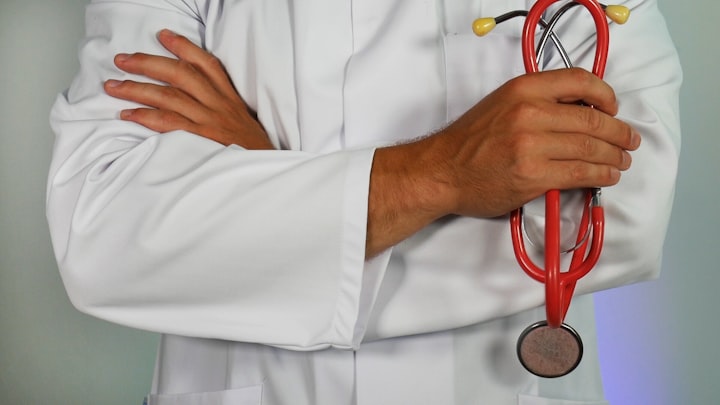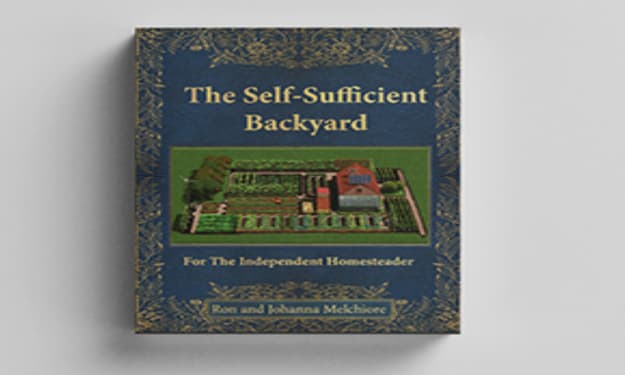
The Home Doctor - Practical Medicine for Every Household - is a 304 page doctor written and approved guide on how to manage most health situations when help is not on the way.
If you want to see what happens when things go south, all you have to do is look at Venezuela: no electricity, no running water, no law, no antibiotics, no painkillers, no anesthetics, no insulin or other important things.
But if you want to find out how you can still manage in a situation like this, you must also look to Venezuela and learn the ingenious ways they developed to cope.
The Home Doctor: Practical Medicine for Every Household
Here are 10 medical supplies that you should consider having in your home:
First aid kit - should include bandages, gauze pads, adhesive tape, scissors, tweezers, antiseptic wipes, and pain relievers.
Digital thermometer - to check body temperature in case of fever.
Blood pressure monitor - to keep track of your blood pressure levels.
Oxygen saturation monitor - to measure the amount of oxygen in your blood.
Over-the-counter pain relievers - such as ibuprofen or acetaminophen, to relieve pain and reduce fever.
Hydrocortisone cream - to relieve itching and reduce inflammation.
Antihistamines - such as diphenhydramine, to relieve allergy symptoms.
Cough and cold medicine - to relieve symptoms of coughs and colds.
Saline solution - for cleaning wounds and rinsing out eyes or nasal passages.
Reusable face masks - to help prevent the spread of infectious diseases.
It is important to note that some medical conditions require prescription medications, and it is always best to consult with a healthcare provider to determine what is best for you.
Taking expired medications can be dangerous and may not be effective in treating your condition. Here's what can happen when you take expired medications:
Decreased efficacy: The potency of the medication may decrease over time, making it less effective in treating your condition.
Adverse reactions: Expired medications can break down into harmful substances that can cause serious side effects, such as nausea, vomiting, and allergic reactions.
Inaccurate dosing: The active ingredients in expired medications may break down or change, making it difficult to determine the correct dose.
Drug interactions: Expired medications may interact with other medications you are taking, leading to unexpected side effects or decreased efficacy of both medications.
In general, it's best to dispose of any expired medications properly and not take them. If you have any concerns about your medications, it is best to consult with a healthcare provider to determine the best course of action.
There are several natural pain-relieving remedies that can be found in your own backyard, here are some of the most commonly used:
Ginger: Ginger has anti-inflammatory properties that can help relieve pain and stiffness. You can consume it in the form of ginger tea or add freshly grated ginger to your food.
Turmeric: This spice contains curcumin, which is a potent anti-inflammatory compound. You can consume it in powder form or add it to your meals.
Willow bark: Willow bark contains salicin, which is the precursor to aspirin and has pain-relieving and anti-inflammatory properties.
Chamomile: Chamomile has been used for centuries to relieve pain and relax the body. You can make chamomile tea by steeping dried chamomile flowers in hot water.
Arnica: Arnica is a flowering plant that has anti-inflammatory and pain-relieving properties. It can be applied topically as a salve or ointment to relieve muscle and joint pain.
Capsaicin: Capsaicin is the compound that makes peppers spicy and has been shown to have pain-relieving properties when applied topically.
It's important to keep in mind that natural remedies can have side effects and may interact with other medications you are taking. Before using any natural remedy, it is best to consult with a healthcare provider to determine if it is safe and appropriate for you.
About the Creator
Arish Ali
The world is yours!





Comments
There are no comments for this story
Be the first to respond and start the conversation.